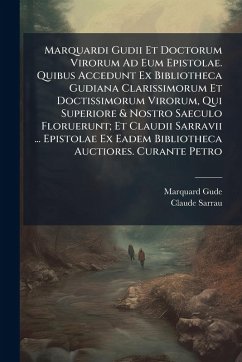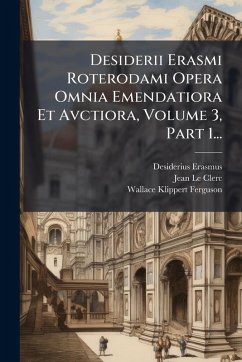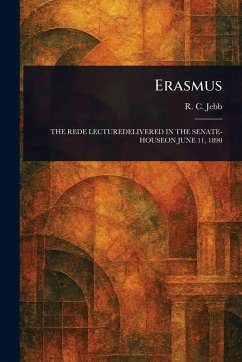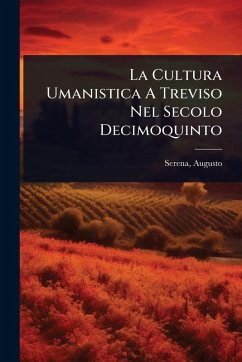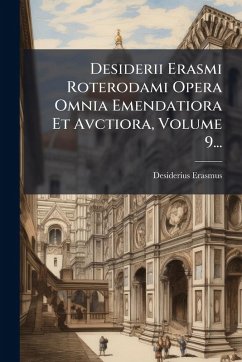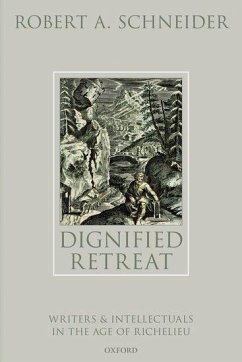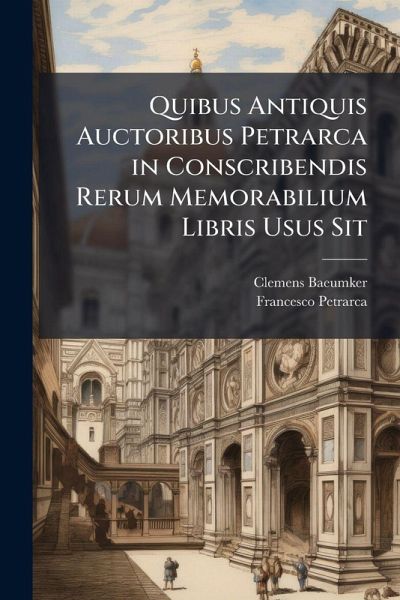
Quibus Antiquis Auctoribus Petrarca in Conscribendis Rerum Memorabilium Libris Usus Sit

PAYBACK Punkte
7 °P sammeln!
Quibus Antiquis Auctoribus Petrarca in Conscribendis Rerum Memorabilium Libris Usus Sit, Pars Prior, examines the classical sources used by Francesco Petrarca (Petrarch) in writing his famous Rerum Memorabilium Libri (Books of Memorable Things). This scholarly work by Clemens Baeumker, originally published in 1882, meticulously investigates the ancient authors and texts that influenced Petrarch's writing. Written in Latin, this book provides a detailed analysis of Petrarch's engagement with classical literature, shedding light on the intellectual and literary context of the Renaissance. It is ...
Quibus Antiquis Auctoribus Petrarca in Conscribendis Rerum Memorabilium Libris Usus Sit, Pars Prior, examines the classical sources used by Francesco Petrarca (Petrarch) in writing his famous Rerum Memorabilium Libri (Books of Memorable Things). This scholarly work by Clemens Baeumker, originally published in 1882, meticulously investigates the ancient authors and texts that influenced Petrarch's writing. Written in Latin, this book provides a detailed analysis of Petrarch's engagement with classical literature, shedding light on the intellectual and literary context of the Renaissance. It is an invaluable resource for scholars and students interested in Petrarch, Renaissance humanism, and the classical tradition. Baeumker's study offers a deep dive into the foundations of Petrarch's thought and writing, revealing the rich tapestry of classical sources that informed his work. This work has been selected by scholars as being culturally important, and is part of the knowledge base of civilization as we know it. This work was reproduced from the original artifact, and remains as true to the original work as possible. Therefore, you will see the original copyright references, library stamps (as most of these works have been housed in our most important libraries around the world), and other notations in the work. This work is in the public domain in the United States of America, and possibly other nations. Within the United States, you may freely copy and distribute this work, as no entity (individual or corporate) has a copyright on the body of the work. As a reproduction of a historical artifact, this work may contain missing or blurred pages, poor pictures, errant marks, etc. Scholars believe, and we concur, that this work is important enough to be preserved, reproduced, and made generally available to the public. We appreciate your support of the preservation process, and thank you for being an important part of keeping this knowledge alive and relevant.





